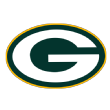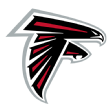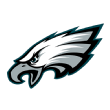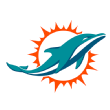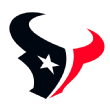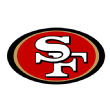A step back for the Packers? Improvement for the Falcons? Barnwell's six against-the-grain NFL pr...

The best prediction you can make about the NFL is that things are never going to stay the same. With what was a 16-game season -- and now is up to 17 -- we're always going to overreact to things we saw in the small sample. Too often, we end up using that as our new opinion or baseline of how a team will perform going forward. Often, history tells us that won't be the case.
Let's use some of the things we saw in 2020 and the historical evidence surrounding those ideas to challenge popular viewpoints surrounding teams heading into this season. I'll hit six teams, starting with one of the most potent offenses in football last season and why it might struggle to keep that up in 2021:
Jump to a team and a question:
Will the Dolphins regress on defense?
How much will the Falcons miss Julio Jones?
Could the Eagles be better than we think?
Will the Packers' offense be as successful?
Do the Texans have any hope on defense?
Could uncontrollable factors boost San Fran?
The Packers won't be as dynamic on offense in 2021
Between 2018 and 2019, Aaron Rodgers & Co. kept things going by avoiding turnovers, even if they didn't have the same explosive offense of previous seasons. The Packers coughed up the ball just 15 times in 2018 and 13 times in 2019, ranking second in the NFL in both campaigns. Rodgers threw just six picks over that two-year span, seemingly trading some risk for steady, solid success.
In 2020, Rodgers didn't make any trade-offs. The Green Bay offense kept protecting the rock, as it turned the ball over 11 times all season, the best mark in football. Rodgers threw more interceptions, but considering that he went from only four picks in 2019 to five in 2020, the Packers weren't exactly hurting. Including their two playoff tilts, they turned the ball over two or more times in four contests and went 1-3, with their lone win coming by four points against the lowly Jags. When they didn't turn the ball over at least twice, they went 13-1.
The Packers were great at something in 2018 and 2019 and then great at it again in 2020. No real difference there. What was different, though, is how they performed inside the most valuable section of real estate on the field. In 2018, they turned 61.7% of their red zone trips into touchdowns, which ranked 13th in the league. The following year, with Matt LaFleur taking over as coach, they upped that rate to 64%, which was good for the eighth-best mark in football.
Last season, the Packers converted 80% of their trips inside the 20-yard line into touchdowns. Red zone success rates don't normally start with an "8." ESPN has red zone data going back through the 2001 season, and no other offense has turned 80% of its red zone possessions into touchdowns before last year's Packers. Given how offenses are generally more efficient now than they were before 2001, there's a decent chance that the 2020 Packers were the best red zone offense in the history of the NFL.
Can they keep it up? History suggests that it's difficult for even the best offenses to convert as frequently in the red zone as the Packers did in 2020. Since 2001, just 5% of a team's red zone conversion rate in a given year can be explained by how it performed the former year inside the 20-yard line. Twelve teams posted a touchdown rate greater than 70% inside the red zone from 2001-19, and they fell to an average of 55.5% the following season.
The only team that kept up its rate of scoring touchdowns more than 70% of the time was the 2019-20 Titans, which might hold relevance for the Packers. While 12 teams topped 70% between 2001 and 2019, six different teams scored touchdowns more than 70% of the time in the red zone last season alone. The Packers, Titans (75%), Browns (73.6%), Seahawks (73.2%), Saints (72.1%) and Vikings (71.2%) all scored at rates we don't typically see inside the 20. Four of these six offenses operate out of the same Kubiak/Shanahan-style attack, and the Seahawks are joining them in 2021, with former Rams assistantShane Waldron taking over as offensive coordinator.
If this is a one-year blip, we would expect the Packers (and the rest of these offenses) to fall back toward the rest of the league in 2021. If 2020 was a sign of things to come leaguewide, though, Green Bay might not lose quite as much as we would expect from a typical offense.
The Falcons won't miss Julio Jones as much as you think
Every team in the NFL would be better with Jones in the lineup, and that includes his former employers. The Falcons traded their longtime star wideout to the Titans for cap relief, and history suggests that Matt Ryan will feel the impact. Since Jones entered the league in 2011, Ryan has posted a QBR of 72.5 with the former Alabama star on the field and a 63.2 mark without him. Let's not pretend that the Falcons are going to be a better version of themselves in 2021 by subbing in Olamide Zaccheaus for a future Hall of Famer.
With that being said, even given Jones' departure, the Falcons are still likely to improve in 2021. Jones' absence and another key factor I'll get to in a minute might reduce their ceiling, but there are few teams in recent memory that were unluckier (or had worse timing) than Atlanta was in 2020. This was the team where win expectancy went to die.
Let's use ESPN's win expectancy model to point out just how bizarre of a season 2020 was for the Falcons. I'll begin with the most crushing losses. They lost two games in which they held a win expectancy of 99%. No other team lost more than one, and only one other team (the 2016 Chargers) lost two of those games in a single season over the last seven seasons. As a brutal reminder:
- In Week 2, the Falcons went up 20-0 on the Cowboys in the first quarter and held a nine-point lead when they punted with 3:09 to go in the fourth, only for Dallas to score a touchdown, mesmerize Atlanta's coverage units with an onside kick and then complete a pass to CeeDee Lamb to set up a 46-yard field goal for the victory.
- The following week, Atlanta had a 99% win expectancy with a 16-point lead in the fourth quarter and the Bears facing a fourth-and-8 at midfield. Chicago converted and scored three straight touchdowns before a Ryan interception ended the game.
Take it out a little further. The 2020 Falcons lost four games in which they held a win expectancy of at least 90%. The only other team to do that was the Chargers. No other team lost more than two such games, and just two other teams (the 2013 Bucs and 2015 Giants) lost as many over the past decade. Add these two to the ledger:
- In Week 7, the Falcons took a 22-16 lead over the Lions when Todd Gurley attempted to hold up at the 1-yard line and fell into the end zone. With 57 seconds on the clock and no timeouts, the Lions drove 75 yards in eight plays (three of which were spikes) before scoring the game-winning touchdown with all zeroes on the clock.
- In Week 15, facing the eventual Super Bowl champion Bucs, Atlanta held a 24-7 lead midway through the third quarter. Tampa Bay scored 17 unanswered points to tie the game, and while a Younghoe Koo field goal gave Atlanta a fourth-quarter lead, Antonio Brown's 46-yard touchdown handed the game to the Bucs.
Expand it out even more. The 2020 Falcons lost six games with a win expectancy on one snap or another of at least 80%. No other team lost more than four such games, and no team has hit that mark since the 2017 Colts. The Falcons lost games in which they held an 80% win expectancy, at least for brief stretches, against the Chargers and Chiefs.
You get the idea. Atlanta was close to winning a lot of games and then lost those games. I know it's tempting to dump the 2020 Falcons with the Super Bowl LI loss to the Patriots in a big bucket and just write it off as Falcons behavior, but that's not really fair. They didn't lose a game with a 99% win expectancy between 2017 and 2019. They lost three games over that time frame with a 90% win expectancy, which is about league average. The Chiefs, for reference, have lost five over that same time frame. Atlanta lost four games with an 80% win expectancy while the Colts lost 12 over that time frame. The Super Bowl loss was a disastrous comedown, but that didn't lead to some pattern in 2020.
The Falcons, almost by sheer randomness, should be better at closing out games in 2021. Some of the (perhaps deserved) scapegoats for those disastrous losses, such as Gurley and coach Dan Quinn, are no longer with the team. Former Titans offensive coordinator Arthur Smith is taking over the offense, but the more important addition might be longtime defensive coordinator Dean Pees, who will be charged with developing an inexperienced, inconsistent secondary.
Losing Jones will hurt, but what might be more painful for Atlanta's ceiling is its schedule. It will get only seven true home games, the fewest of any team. The 17-game schedule will give each AFC team nine home games, and the Falcons are the lone NFC team sacrificing a home game to play in London this season. They should be able to improve on last season's 4-12 record, but it might be tougher than it should be to hit the nine or 10 wins needed to challenge for a playoff spot.
The Eagles should be better on offense than you remember
Your most recent memories of the Eagles' offense probably aren't pleasant. The final drive of the 2020 regular season saw Nate Sudfeld and a Philly attack that needed to score a touchdown in 56 seconds to win go 18 yards on seven plays. The clock expired on Philly's season and then on Doug Pederson's tenure as coach. The Eagles traded away Carson Wentz, let go of Alshon Jeffery, DeSean Jacksonand Jason Peters, and appear likely to cut ties with Zach Ertz before the season begins. It's an offensive rebuild under new coach Nick Sirianni.
There's something about the Eagles' offense from 2020 that might actually improve in 2021, if only by sheer chance. It's almost impossible to imagine this offensive line being as banged up as it was last season. Let's take a quick look back at how Philly's plans went last year:
- Star right guard Brandon Brooks, who was coming off three consecutive Pro Bowl appearances, tore an Achilles in July and missed the entire season. The Eagles signed Peters to return to the team and convert to guard to take Brooks' place.
- Second-year left tackle Andre Dillard, the team's first-round pick in 2019, tore his biceps in August. He also missed the entire campaign. Peters was shifted back to his longtime spot at left tackle to fill in for Dillard.
- Peterslasted three games before suffering a toe injury that forced the 38-year-old to injured reserve. He then limped through four and a half games before going back on IR.
- Left guard Isaac Seumalo suffered a knee injury in the Week 2 loss to the Rams and missed seven games before returning for the final seven tilts of the season.
- Right tackle Lane Johnson, who was also coming off three consecutive Pro Bowl nods, dealt with COVID-19 over the summer and then suffered a high-ankle injury before the season began. The former fourth overall pick was pulled from multiple contests and sprained his MCL before eventually undergoing ankle surgery. He missed nine games outright and was able to complete only three games all year. By the time he went for surgery, Johnson told reporters that the inside of his ankle had collapsed.
- Center Jason Kelce started all 16 games and missed just five offensive snaps all season.
The Eagles were counting on their five starters (and then Peters after he was signed) to take the majority of the snaps up front. Instead, they got 16 mostly healthy games from Kelce and about 13 complete games from the other five combined. Other teams dealt with serious offensive line injuries, including Philly's archrivals in Dallas, but this is about as bad as it gets for a team in a single season. On the whole, the Eagles were the second-most injured team in the league, according to Football Outsiders' Adjusted Games Lost metric.
What happens next is up in the air, but my suspicion is that the Eagles won't be as injured in 2021, particularly along the offensive line. Many of the players jettisoned were perennially dealing with injury problems and/or at the tail end of their careers. Some of the players left have injury histories, too, but Philadelphia has a much better shot of fielding an above-average offensive line in 2021. Given that it ranked toward the bottom of the NFL in Adjusted Sack Rate (31st), a healthier line could do wonders for Jalen Hurts' efficiency as a passer in Year 2.
The Dolphins might have a tougher time on defense
Brian Flores has to be lauded for his turnaround of the Dolphins. After starting 0-7 with a team seemingly beginning a lengthy rebuild, Flores' Miami team has gone 15-10. There's a lot to like about the young talent making up this core, and if quarterbackTua Tagovailoa takes a step forward in his second season, it could be in a dogfight with the Bills for the AFC East.
I'm a little concerned, though, that the defense might struggle to look as impressive as it did in 2020. The Dolphins invested heavily on the defensive side of the ball last offseason and then shed some of their free-agent additions by trading Shaq Lawson to the Texans and cutting Kyle Van Noy one year into his four-year, $51 million contract. The 2020 Miami defense improved from 32nd in DVOA all the way to 11th, but there are some elements of that improvement that it might struggle to keep up.
Start with their interception rate. The Dolphins picked off 3.3% of opposing passes last season, which was the third-best rate in football behind the Patriots and Steelers. New England and Pittsburgh were also atop the leaderboards in 2019, but both took a step backward in 2020 after even loftier interception rates the prior year. The Dolphins jumped from 2.4% in 2019 to 3.3% last season, and history tells us that the odds are against teams posting interception rates well above league-average on an annual basis.
To be fair, they have invested heavily in their secondary, and their top corner is a true ballhawk. Xavien Howard might have had the most impressive season in terms of interceptions in league history a year ago, given that he came away with 2.5% of all the league's picks. His skills are undeniable, but he has a significant injury history and is currently unhappy with the organization. Byron Jones, Miami's other star corner, has just four interceptions across his first six pro seasons. If Howard isn't producing at a historic rate again in 2021, it'll be tough for the Dolphins to keep up this sort of interception rate.
The other way they stood out was by dominating on third down. Flores' defense allowed opposing teams to convert only 31.2% of their third downs. Not only was that the best mark in the league, but it wasn't particularly close; the second-placed Ravens were nearly three full percentage points off at 34.0%. No team in football was better at getting off the field than the Dolphins.
Typically, this isn't a repeatable skill. If you're not great on first and second down, it's not sustainable to turn yourself into the league's best defense afterward. The Dolphins were inconsistent from down to down; they ranked 29th in defensive EPA on first down, eighth on second down, then topped the NFL on third down. Their personnel might be better equipped to play on passing downs than they are on first-and-10, but that's not enough to explain the gap between being the league's fourth-worst defense and its best unit.
Just 2.1% of a team's performance on third down can be explained by its performance on third down the prior season, suggesting that a team which excels on third down in a given year isn't much more likely than the pack to be that dominant again on third down the following season. If the Dolphins do take a step backward on defense in 2021, I suspect it will be a product of those two factors failing to keep up with their 2020 performance.
The Texans won't be as hopeless as they seem (on defense)
On the opposite end of the spectrum, the 2020 Texans were about as hapless as it gets. By any measure you can find, they were a disaster on defense. Anthony Weaver's unit ranked 27th in points allowed, 30th in points allowed per drive and 30th in DVOA. A composite of the quarterbacks who played the 4-12 Texans last season would have posted a better passer rating than Patrick Mahomes in 2020, and that came in a year in which Houston faced starters such asBrandon Allen, Jake Lutonand Mitchell Trubisky. Opposing quarterbacks completed 69.7% of their passes against the Texans while averaging 8.0 yards per attempt and throwing 30 touchdowns against just three picks.
That last number is where I want to start. Three interceptions for an entire defense isn't an NFL record, but it's close; you might remember that the 2018 49ers intercepted just two passes all season, something highlighted in this space before the 2019 campaign. Add in six fumble recoveries and the Texans finished with just nine takeaways, the second-lowest mark in NFL history. Again, they're just behind the 2018 49ers, who had seven. The 2019 Niners picked off Jameis Winston three times in Week 1, finished the year with 12 interceptions and ended up making it all the way to the Super Bowl.
I don't want to spoil the 2021 season for you, but let me throw this one out there: The Texans aren't making it to the Super Bowl. It's about as unlikely as their chances of finishing with three interceptions again. Even bad teams get too many chances at possible interceptions to finish with just three picks in back-to-back seasons. Houston has quarterbacks such asSam Darnold, Cam Newtonand Zach Wilson on the schedule, and that's before even considering the likelihood of facing a backup quarterback or two by the end of the year.
It's fair to note that the Texans lost their most notable defender this offseason when they cut J.J. Watt, but general manager Nick Caserio unquestionably added much-needed depth to the roster this offseason. Houston signed more than a dozen veterans to play on the defensive side of the ball, including recent startersJordan Jenkins, Terrance Mitchelland Christian Kirksey. It traded for Shaq Lawson and already had a pair of useful contributors in Justin Reid and Whitney Mercilus. The Texans are not going to be a great defense by any means, but at the very least, Lovie Smith's unit is going to force more takeaways this season.
The 49ers will get a boost from some uncontrollable factor in 2021
It was a lost 2020 season for the 49ers, who lost key contributorsJimmy Garoppolo, Nick Bosaand George Kittle for significant portions of the year. Naturally, their hopes of competing for a Super Bowl in 2021 depend upon keeping their key contributors healthy. Rookie first-round pickTrey Lance might be able to step in for Garoppolo at quarterback, but there's nobody on the roster who can fill in for Kittle or Bosa. Injuries aren't totally random -- some players are more susceptible to injury than others -- but the Niners can't really control whether a player like Bosa stays healthy in a given season.
There are many other elements of the game that teams typically either can't control or can't directly control. Two of them should improve for the Niners in 2021. The first is allowing defensive touchdowns. With Nick Mullens and C.J. Beathard taking plenty of reps, the 49ers turned the ball over 31 times, which was the second-highest total in football. While that would be bad enough, they then allowed teams to score four defensive touchdowns, including two in one game against Washington. Offenses can protect the football, but there's no evidence of an offense being particularly good at stopping or allowing long returns. The Niners should turn the ball over less frequently next season, and with that, they should allow fewer touchdowns on offense.
Likewise, opposing kickers had a great season against the 49ers in 2020. They went a combined 33-of-37; the resulting 89.2% conversion rate was the sixth best in the league. Opposing kickers generated 12.8 EPA against the 49ers in 2020, which was the third most of any team, ahead of only the Broncos (who play at altitude) and the Vikings (who are cursed with all things related to kicking). The Broncos are more susceptible to allowing big kicks because of their home city, but the vast majority of defenses aren't going to have any impact on opposing kickers across multiple years. The 49ers should celebrate more missed field goals in 2021.



